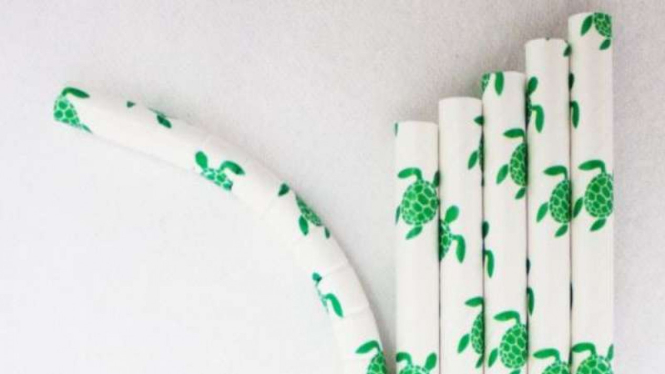Paper Straws Found to Contain Chemical Substances
- refinery29.com
World – Paper straws, which have been touted as an environmentally friendly alternative, have been found to contain durable and potentially toxic chemical substances, according to the findings of a recent study. In the first analysis of its kind in Europe, Belgian researchers tested 39 brands of straws for a group of synthetic chemicals known as poly- and perfluoroalkyl substances (PFAS).
PFAS were discovered in a majority of the tested straws, with the highest prevalence found in paper and bamboo straws. These synthetic chemicals are used to create everyday products ranging from outdoor clothing to non-stick pans, providing resistance against water, heat, and stains.
However, these materials pose potential risks to humans, wildlife, and the environment. They degrade very slowly over time and can persist in the environment for thousands of years, a characteristic referred to as 'forever chemicals'.
These substances have been linked to a range of health issues, including reduced vaccine efficacy, low birth weight, thyroid diseases, elevated cholesterol levels, liver damage, kidney cancer, and testicular cancer.
Sedotan ramah lingkungan
- refinery29.com
The research team purchased 39 different brands of straws made from five different materials – paper, bamboo, glass, stainless steel, and plastic. These straws were mainly obtained from shops, supermarkets, and fast-food restaurants. They underwent two rounds of PFAS testing, as reported by the Daily Mail.
The analysis revealed that a majority of the brands – 69 percent – contained PFAS, with a total of 18 different PFAS detected. Paper straws were likely to contain synthetic chemical substances.
The most common PFAS found was perfluorooctanoic acid (PFOA), which has been globally banned since 2020. Other detected substances included trifluoroacetic acid (TFA) and trifluoromethanesulfonic acid (TFMS) – 'ultra-short chain' PFAS that readily dissolve in water, making it possible for them to mix from straws into beverages.
While the low concentrations of PFAS may pose limited health risks to humans, they can persist in the body for years, with their concentration increasing over time. Researchers suggested using stainless steel straws or avoiding straw use altogether.
"Straws made from plant-based materials, like paper and bamboo, are often marketed as more environmentally friendly compared to plastic straws. Even in small amounts, PFAS can add to the chemical burden already present in the body," stated Thimo Groffen, an environmental scientist at the University of Antwerp involved in the research.



























